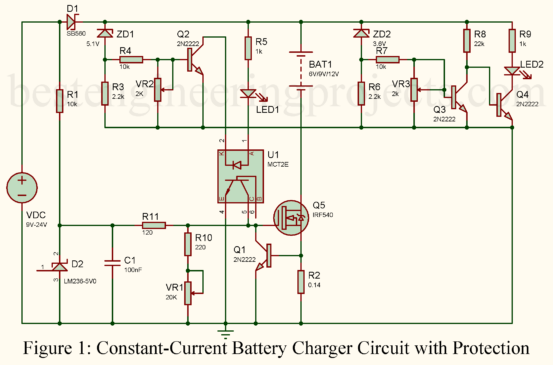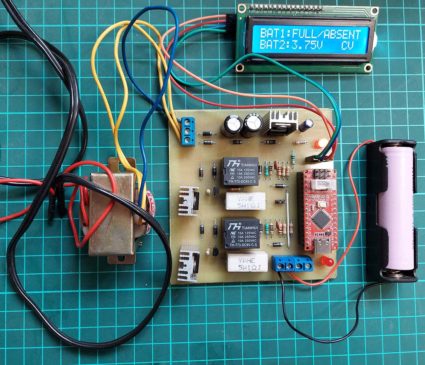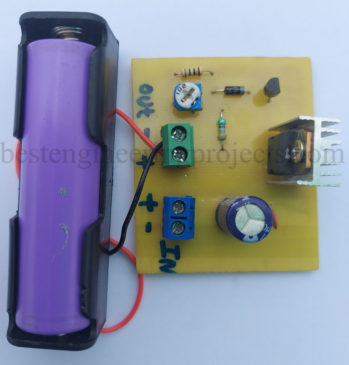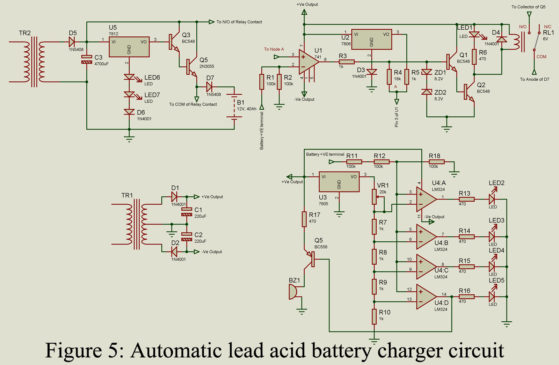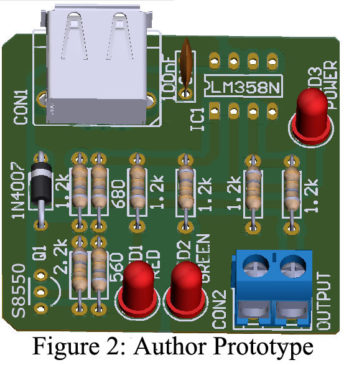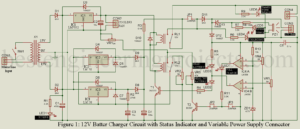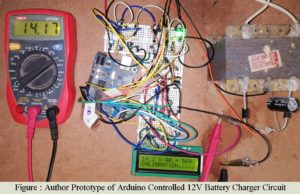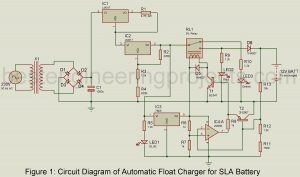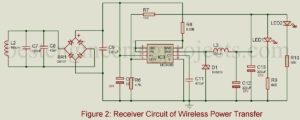Ever wished your battery charger could do more than, well, charge? What if it could be smart enough to know when your battery’s full or even warn you when it’s about to run out of juice? That’s the magic of the Constant-Current Battery Charger Circuit with Protection. It’s like the caring friend who not only lends you a hand but also ensures you’re on the right track. Let’s explore this innovative circuit that charges your battery efficiently and keeps it safe from overcharging and deep discharge. Why Constant-Current Charging? Think…
Read MoreCategory: Battery Charger Circuit
various types of battery charger circuit for various types of battery. SLA battery charger, Ni-Cd battery charger
DIY Solar 18650 Charger with Emergency Light
In this article, you will learn to design DIY Solar 18650 Charger as well as a solar emergency light. This device will help you charge a device through a USB port and it has an inbuilt led in it, which will serve as an emergency light when needed. Introduction of DIY Solar 18650 Charger with Emergency Light: Solar energy is the best way to reduce your energy consumption as it uses sunlight to produce energy. Sunlight can be utilized neatly, without harming our environment. So, here we are also going…
Read MoreArduino LiFePO4 Battery Charger Circuit
Amongst the rechargeable batteries available on the market, Lithium Iron Phosphate battery (LiFePO4 battery) or LFP battery (Lithium Ferro Phosphate) is widely used due to the various benefits offered, compared to other batteries. Longer life span, highly safe, lightweight, improved discharge, and charge efficiency are some of the advantages provided by the LiFePO4 batteries. In the market, you will find different types of LiFePO4 battery chargers that may or may not fulfill your requirements, and you may find them expensive. Previously, we had already discussed a DIY LiFePO4 battery charger…
Read MoreLithium Ion Battery Charger Circuit using LM317
A Lithium-Ion Battery Charger Circuit using LM317 charges the battery in two different modes: constant current mode and constant voltage mode. Lithium polymer or lithium-ion batteries are very prone to overcharging or charging with high voltage or high current. Thus, when designing the charger circuit for Li-ion or Li-Po, we must consider a few things, such as charging voltage and current. The circuit posted here is designed using one of the famous variable voltage regulators, IC LM317. This circuit charges the battery in two modes, i.e., constant current and voltage.…
Read MoreAutomatic Lead Acid Battery Charger Circuit
An automatic lead acid battery charger circuit is designed to charge 12V, and 40Ah in different charging modes i.e. boost mode and float mode. This circuit can be used to charge large-capacity inverter batteries by replacing transformers and power transistors with higher ratings. To know the condition of the battery and charger unit, this circuit was incorporated with an audiovisual indication unit. Before going to the circuit description and working let’s see its salient features: Features of Automatic Lead Acid Battery Charger Circuit Automatic charger the battery and maintain the…
Read MoreLiFePO4 Battery Charger Circuit
Lithium Iron Phosphate LiFePO4 or Li-Fe battery is the latest generation of Li-ion battery and is popular among electronics hobbyists because of its features like high discharge current rate, safety and it is the least toxic of all battery types. Also, these batteries are safer because of the chemistry involved to make them. It contains a very stable composition of phosphate as a result longer life span of the battery can be achieved. However, the latest generation Li batteries are non-inflammable and are capable of bearing extreme conditions. In this…
Read More12V Lead Acid Battery Charger Circuit
There are lots of 12V Lead Acid Battery Charger Circuit available over the internet but does not include a battery status indicator. If you wish to know the status of the battery like dead, charged, or charging you need an extra circuit. In order to solve these problems, we combined three different circuits and hence do three different dedicated jobs like charging the battery, indicating the status of the battery, and also have a dedicated port for variable power supply connector of bench power supply in case you need. This…
Read MoreArduino Controlled 12V battery charger circuit
Arduino is an open-source that is designed for artists or for those who do not have an electronic background. Here, in this article, we are going to show you the method of making a battery charger circuit controlled using an Arduino uno board. The project Arduino Controlled 12V battery charger circuit is an advanced version of the previous posted project “12V, 7Ah Smart Battery Charger with PCB Diagram”. This charger also has the features of bulk stage charging and float stage charging as in the previous circuit. Silent features of…
Read MoreAutomatic battery float charger circuit
Automatic battery float charger circuit: This article aims to develop a battery charger circuit using the principle float charging technique. Afloat charger is also referred to as a smart charger, maintenance charger, or storage charger because it charges the battery at the same rate at which it self-discharges. The main reason for using a float charger is, that it protects the battery from overcharging and deep discharging. Thus, you can connect the float charger circuit to a battery for indefinite intervals of time i.e. there is no need to disconnect…
Read MoreWireless Mobile Charger Circuit Diagram
Wireless Mobile Charging is one of the trending topics in the field of electronics thus we also decided to build a Wireless Mobile Charger Circuit Diagram using various commonly available components. The project Wireless Mobile Charger Circuit Diagram posted here can deliver 271mA at 5.2V so you charge mobile phones and also can be used to drive low power loads such as LED1 and LED2 as shown in figure 2. Working Principle of Wireless Mobile Charger Circuit Diagram Wireless Mobile Charger uses the inductive coupling principle. In this principle, two…
Read More